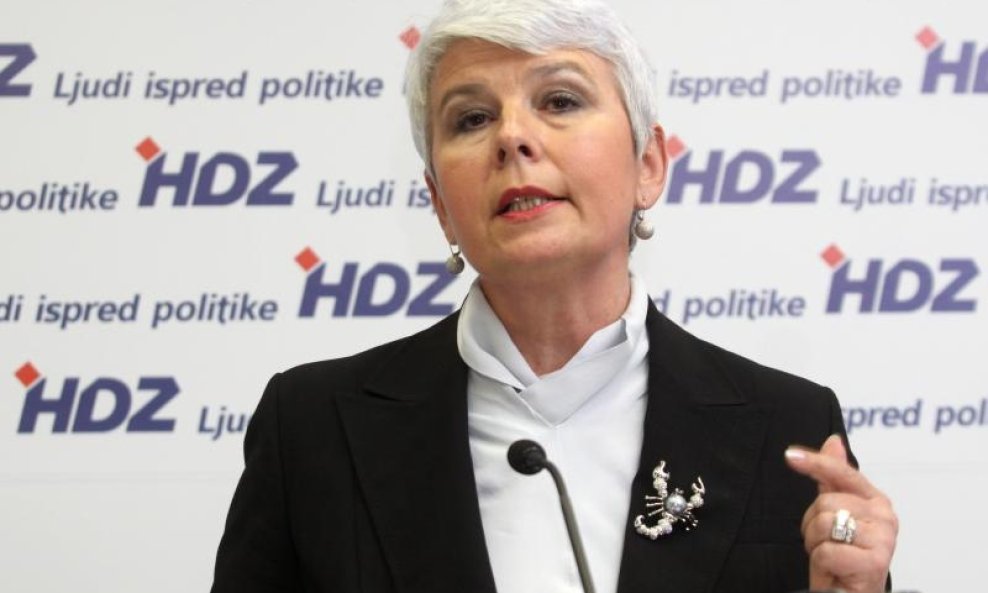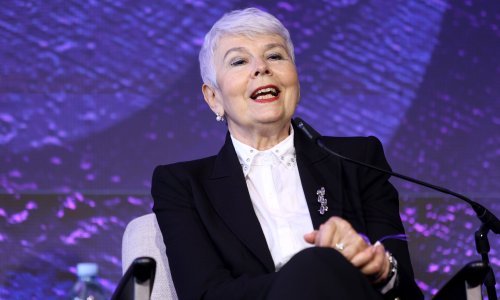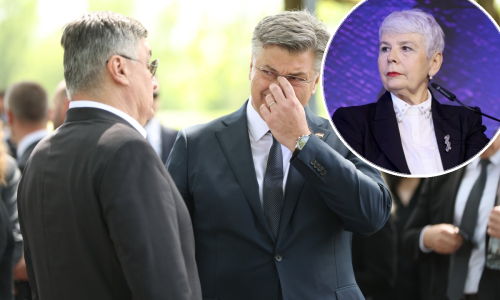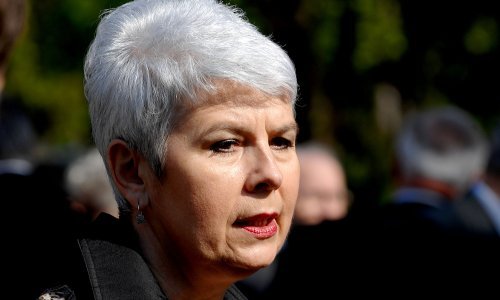Prime Minister and Croatian Democratic Union (HDZ) president Jadranka Kosor said on Friday the ruling party's slates for the upcoming parliamentary election would respect all regulations, including on gender equality, and reflect the fundamental guideline of the HDZ's platform - the economy.
Asked on Croatian Television's primetime news if the HDZ's slates would give precedence to young people or older, eminent party members, Kosor responded by asking why nobody put this question to the opposition HNS (Croatian People's Party) or SDP (Social Democrats).
She said that with the HNS "it's about only two people, one of whom has big personal problems but is saying he will take over seven or eight ministries," adding that the media treated some parties differently.
Kosor said she did not expect problems with the HDZ's veteran members, adding that the opinion had matured that the HDZ should remain a big stable party that was important for Croatia. She also reiterated that without a stable HDZ, there was no stable Croatia.
Kosor said she was not worried about her party's lack of big support in public opinion polls, adding that such polls were not crucial and that the HDZ was continuing to work and make primaries democratic from top to bottom by amending the party's statute.
Kosor said some of the HDZ's main trumps were the clampdown on corruption and the success in it over the past two years as well as the completion of Croatia's accession negotiations with the European Union.
Regarding observations that the HDZ's platform contained no painful cuts, she said the platform should be based on what was already done, such as the decision to freeze budget expenditures this year and the passage of the Fiscal Responsibility Act, for which she said the opposition did not vote.
Kosor stressed the clampdown on corruption "has flared up," adding that it would be fought "to the last breath" and that it had strengthened independent institutions.
Asked if she could have foreseen something like that when she came to the helm of the HDZ two years ago, she said that was difficult to foresee.
"When I decided to open wide the doors and windows of my party to the fight against corruption, I knew that at some point we too would pay the price. I didn't anticipate it would be so high," Kosor said, adding that she was not sorry and that this was the path to pursue.
She said that, whereas the HDZ was "wide open to the fight against the evil of corruption", other parties were not and that she expected them to become ready for that fight.
Kosor said the clampdown on corruption had nothing to do with the parliamentary election in December and that neither did the bill declaring null and void all legal documents of the former Yugoslav People's Army (JNA), its judicial bodies, the judicial authorities of the former Yugoslavia and those of Serbia in which Croatian citizens are suspected, accused or convicted of crimes relating to the 1991-95 Homeland War in Croatia.
She said the government sent the bill to parliament and that everyone who thought it was an election-related law should vote against it.
Should the government have kept quiet until 40 more indictments arrived from Serbia, Kosor wondered, stressing that the government must protect state interests.
Asked why the bill was not moved earlier, she said the agreement signed by the Croatian Interior Ministry and the relevant Serbian ministry did not bring the desired results and that since then "things have deteriorated."



































